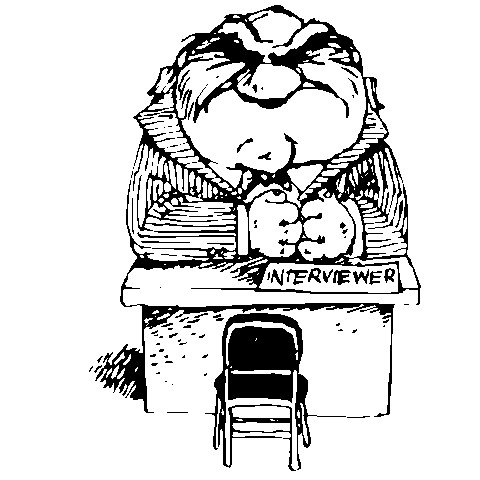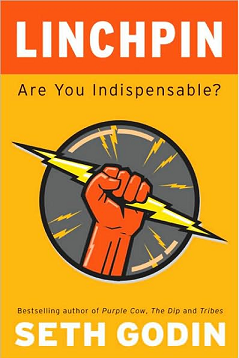
Every four years, athletic administrations across the country conduct student-athlete exit interviews. It’s a time where student-athletes can reflect on their athletic achievements and make comments like how a pineapple-lemonade soda machine would have been helpful in the student-athlete lounge or a Swedish masseuse would have been nice during their training. They hand it in, administration pats themselves on the back noting that the student-athlete didn’t make any “realistic” comments on problems that they could have fixed and then the paper is quickly crumpled and discarded in the nearest receptacle.
The problem with these exit interviews is that they provide little opportunity for improvement. First, the feedback is not asked in real time. Do you really want to wait four years to fix a problem that could have been addressed at the end of the first semester?
Second, the questions are never specific or thought provoking … it’s usually a formality put into place so that management can have a safety net to fall back on, claiming after a problem surfaces that they did their due diligence and asked for comments year after year, “how was I suppose to know that our cafeteria wasn’t open past our last practice time? I asked for general comments every year.”
Lastly, asking for general comments only ensures you of one thing: general, non-specific comments in return (read: vanilla). If you are serious about making change, then your questions will reflect this. Asking specific questions regarding the hours of operation of your facility and if it meets the needs of your student-athletes will evoke a much different response then simply asking for comments about the Athletic Training Room or Strength and Conditioning Room in general. Basically, specific questions generate qualified comments.
I once heard a story of a department that placed a suggestion box out for their customers to leave comments in. They didn’t read them of course; but having customers leave suggestions made them feel as if they had a voice, they said. Talk about a lost opportunity to tap into your customer base.
Is your exit process an interview or does it provide opportunity?
Art Horne is the Coordinator of Care and Strength & Conditioning Coach for the Men’s Basketball Team at Northeastern University, Boston MA. He can be reached at a.horne@neu.edu.
Topics:
Art Horne,
hockey conference,
motivation,
customer service,
development

A friend of mine recently left his job at a major academic institution where he worked his way up from the ground floor into a middle management position before leaving for the upper ranks at a competitor’s on the west coast. As a courtesy to the organization in which he had given so much, and so much given to him, he approached his superior's administrative assistant and asked if there was a formal “exit interview” that he was to partake in prior to his final day at the end of the week.
“Usually only people that want to complain ask for exit interviews,” the administrative assistant explained, “did you still want to speak with him?”
“ummm, well, no, not anymore,” my friend replied.
Wouldn’t an exit interview be the perfect opportunity to gain feedback into your organization’s weaknesses, customer service, and operating procedures?
Sure the employee may be salty that they are leaving, but what chance for feedback do you have otherwise once they’ve walked out the door?
You should search out that employee and simply ask, “what can we do better?” This is the only time they won’t be afraid to tell you exactly how it is. You can sift through the salt and substance after, but once they’re gone, they’re gone, and hence so is the opportunity for your organization to improve.
Art Horne is the Coordinator of Care and Strength & Conditioning Coach for the Men’s Basketball Team at Northeastern University, Boston MA. He can be reached at a.horne@neu.edu.
Topics:
Art Horne,
basketball resources,
Ownership,
Good to Great,
discipline,
customer service,
everything basketball,
development,
managing

Do you treat your each patient as if they were your daughter?
Do you listen attentively while taking an injury/illness history as if you were listening to your grandmother? Do you welcome each patient into your treatment room with a smile and thank them for stopping in? Do you call your patients after surgery just to make sure they are doing ok – you know, just the way your mother used to with you?
I remember being an athletic training student at Canisius College when I was challenged by my mentor, Pete Koehneke, to treat every patient as if they were his daughter or a family member.
Boy, did my attention to detail quickly change.
How would the quality of your patient care change if you were treating your daughter/son or better yet your boss’ child?
Would you still be texting on your cell while performing that ultrasound treatment? How about the “advice” of rest and ice you gave the long distance runner without examining them first?
Would that change?
What if that track athlete was a family member? Your sister? Your child?
How would you treat your patient then?
Art Horne is the Coordinator of Care and Strength & Conditioning Coach for the Men’s Basketball Team at Northeastern University, Boston MA. He can be reached at a.horne@neu.edu.
Topics:
Ownership,
Health,
Good to Great,
athletic trainer,
customer service,
evidence based medicine,
Leadership

Is just an excuse for not wanting to do the work required to get a project shipped.
If your boss truly won’t let you, it’s probably because you are asking the wrong questions.
If you want your boss to support you during a project which will ultimately reward you if it works, but punishes the boss if fails then of course you’re asking the wrong questions.
What exactly won’t your boss let you do?
Did you investigate it? Research it? Find a gap in your current operating procedures that is worth filling? Does it fit into your core principles? Values?
If the answer is yes, and your boss really won’t let you, then you might want to find another job where your boss supports the extraordinary work that you’re doing.
Unless of course, your happy with ordinary?
(rant inspired by Seth Godin and his most recent book, Linchpin)
Art Horne is the Coordinator of Care and Strength & Conditioning Coach for the Men’s Basketball Team at Northeastern University, Boston MA. He can be reached at a.horne@neu.edu.
Topics:
basketball conference,
Strength & Conditioning,
Ownership,
discipline,
athletic training books,
customer service,
development,
Seth Godin

Its the end of fall camp and everyone is feeling a bit run down at work and lacking the needed umph to muster a smile. May I suggest a quick read that is sure to place a smile not only on your face, but also on the faces of your co-workers and customers. Fish, by Lundin, Paul and Christensen is the true story of The Pike Place Fish Market where fish are tossed from worker to worker and comic relief comes free of charge. For all those that haven't read it the four main points are outlined below and provide for a nice framework to build your day around, in addition to a break from the traditional management style.
1. Choose your attitude
There is always a choice about the way you do your work, even if there is not a choice about the work itself.
2. Play
“We can be very serious about our jobs without being very serious about ourselves” - Fish
3. Make their day
Find someone who needs a helping hand, a word of support, or a good ear – and make their day.
4. Be present
“talk to them as if they were a long lost friend”
- Fish
So go ahead and throw a fish and have some fun at work tomorrow. Just be sure to wash your hands after.
Art Horne is the Coordinator of Care and Strength & Conditioning Coach for the Men’s Basketball Team at Northeastern University, Boston MA. He can be reached at a.horne@neu.edu.
Topics:
basketball conference,
athletic training conference,
Strength & Conditioning,
discipline,
customer service,
development,
Leadership

In a recent post by Seth Godin he challenges one’s normal approach to problem solving which is usually the “wait to be inspired then act” method and asks us to instead actively seek out inspiration.
Seth states, “Simple example: start a blog and post once a day on how your favorite company can improve its products or its service. Do it every day for a month, one new, actionable idea each and every day. Within a few weeks, you'll notice the change in the way you find, process and ship.”
My challenge to you is to take Seth’s example of blogging, but instead of blogging about your favorite company, write down one new actionable idea each and every day this coming month that will improve your department’s service to your student-athletes. It may be as simple as greeting each athlete or patient with a high five as they enter your office or as complex as a new pre-participation exam that actually screens them for risk factors that matter. Or how about an idea that will provide your staff with more opportunities to ship?
Once you’ve committed to writing down these ideas you’ll not only discover there are a number of easy ways to improve your services, but you’ll actually find yourself leading others to the trough of change.
Warning: you can lead a co-worker to water, but you can’t make them drink. But gosh darn it, seeing you drink first makes it a whole lot easier for others to drink the cool-aid.
Art Horne is the Coordinator of Care and Strength & Conditioning Coach for the Men’s Basketball Team at Northeastern University, Boston MA. He can be reached at a.horne@neu.edu.
Topics:
athletic training,
Strength & Conditioning,
motivation,
Ownership,
Good to Great,
discipline,
customer service,
evidence based medicine,
development,
Leadership,
managing

A good friend from Australia sent me this clip about workplace motivation. Besides the awesome animation, it’s just under 11 minutes and worth every second of it.
It may surprise you that monetary incentives are not the lead motivator in the workplace, but instead the three factors that lead to better performance and personal satisfaction are:
Autonomy: desire to be self directed.
Mastery: our urge to become better.
Purpose: When profit motive becomes unmoored from purpose motive bad things happen (bad customer service, crappy products, etc).
How does this change your management strategy this week?
Art Horne is the Coordinator of Care and Strength & Conditioning Coach for the Men’s Basketball Team at Northeastern University, Boston MA. He can be reached at a.horne@neu.edu.
Topics:
basketball conference,
athletic training conference,
athletic training,
Strength & Conditioning,
motivation,
autonomy,
purpose,
mastery,
Good to Great,
discipline,
customer service,
development
If rules were meant to be broken, why do we even bother with them? We set policies for our student-athletes to help us maintain control over the things we are responsible for. So when Star Athlete says, ‘Mind giving me the security code to the weight room door so I can get in a lift after hours?’, no big deal right.
Except that Star Athlete might share that code with a roommate, and he/she might pass it along to two friends. All of the sudden, everyone has the code and even though the weight room is officially closed, it’s more open than ever. Now you have liability issues, and equipment will start to slowly disappear. All because you made an exception.
The hardest thing to do with masses of people is to implement a new policy. It is human nature to resist change. So when our job dictates we change the way something is done, we have to stand by that policy with no exceptions, even if it means being the bad guy every now and then. Once people realize that no actually means no, they will start to respect and follow your policy and your policy will be effective.
But then don’t start making exceptions!
Mark Harris is the Assistant Director of Athletic Development at Northeastern University.
Topics:
basketball training programs,
athletic training conference,
Ownership,
john wooden,
customer service,
development,
Leadership
Everyone’s entitled to their own opinion but not their own facts.
When meetings boil down to people’s opinions, I usually have to leave. I know that we are each entitled to our own opinion. I get that.
But don’t confuse your opinion with facts.
“Well, I feel this would be the best solution…”
Did you look at the distributor? Is there a cheaper way to get the same product? What about the warranty? How does it fit into our business model or fit our core principles? Is there evidence based literature that supports its use and price tag? Will it serve a large group or can it only be used by one individual at a time?
Facts take time to investigate. They take energy and a “superdisciplined” approach. Opinions are like talk at the barbershop.
I’ll take an order of more facts please.
Art Horne is the Coordinator of Care and Strength & Conditioning Coach for the Men’s Basketball Team at Northeastern University, Boston MA. He can be reached at a.horne@neu.edu.
Topics:
basketball resources,
athletic training conference,
athletic training,
Strength & Conditioning,
Ownership,
Good to Great,
discipline,
customer service,
development,
Leadership,
managing
Sometimes it feels like we have so much to do, so many little fires to put out, so many tasks to accomplish in so little time that we forget we are running around with scissors. Although this may not be literally speaking, the fact is that running with scissors, at least as my mom always told me, was dangerous.
Instead of running around with scissors in your hand, pass them off to someone that should actually be doing the trimming. You see, when you’re doing the job that other people were suppose to do, you’re wasting your time as well as theirs. When you do other people’s jobs you are actually making your organization worse.
Your job as a leader is to ask tough questions and challenge the scope of your job and the jobs of those around you.
Don’t confuse activities with accomplishments.
Now put down the scissors.
Art Horne is the Coordinator of Care and Strength & Conditioning Coach for the Men’s Basketball Team at Northeastern University, Boston MA. He can be reached at a.horne@neu.edu.
Topics:
Strength Training,
basketball resources,
athletic training conference,
Ownership,
Good to Great,
discipline,
athletic trainer,
customer service,
development,
managing









